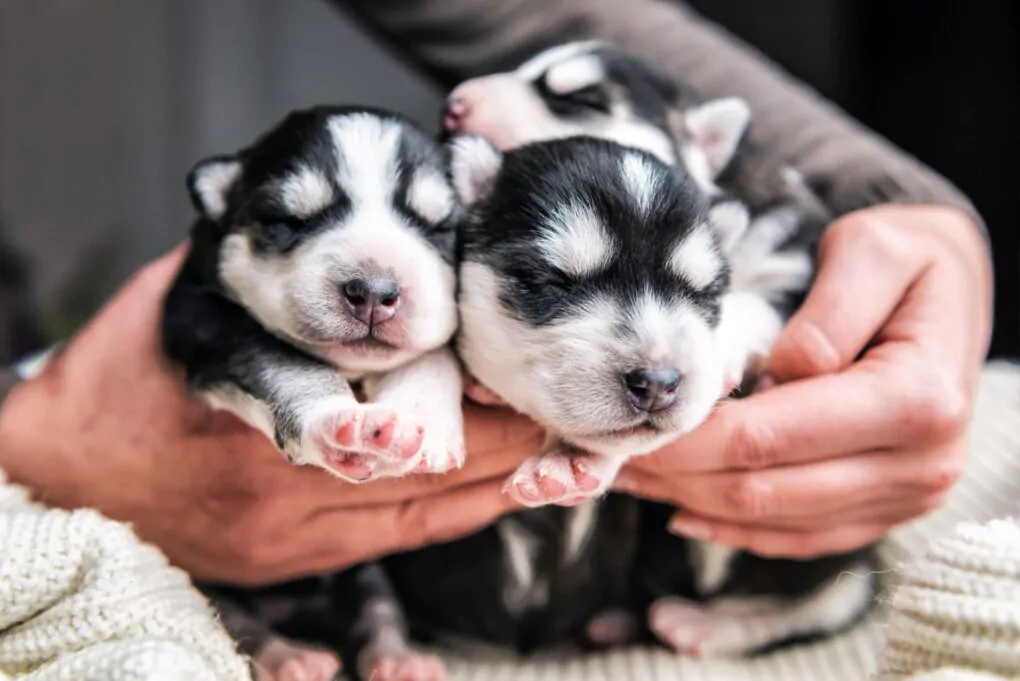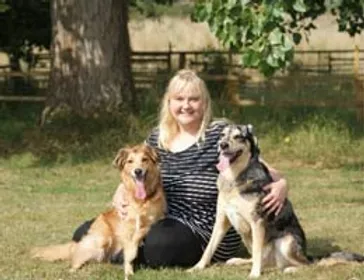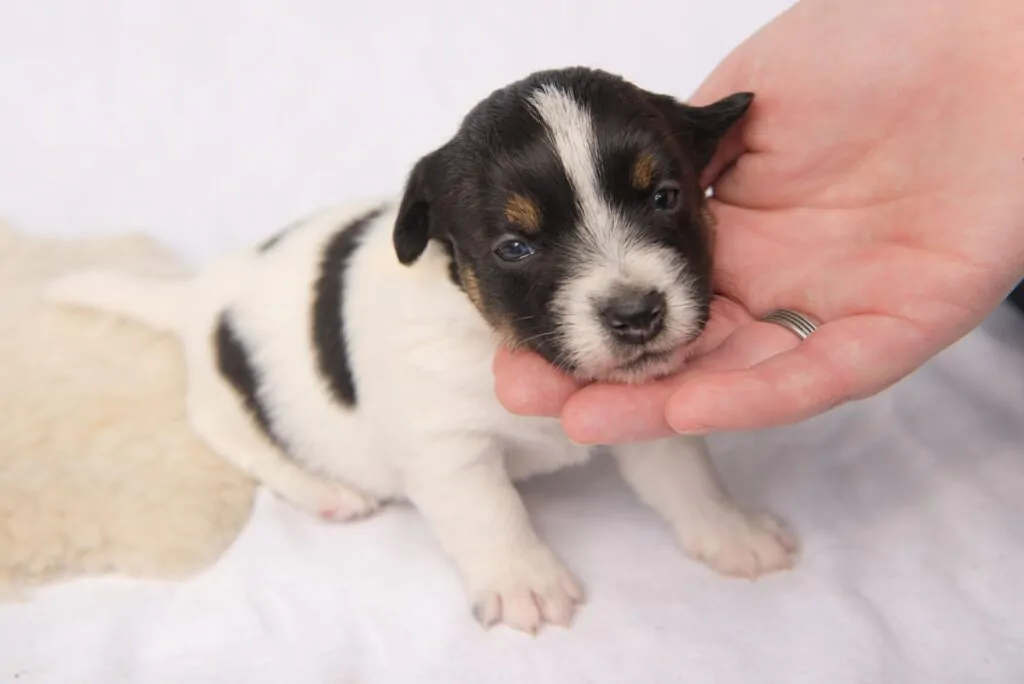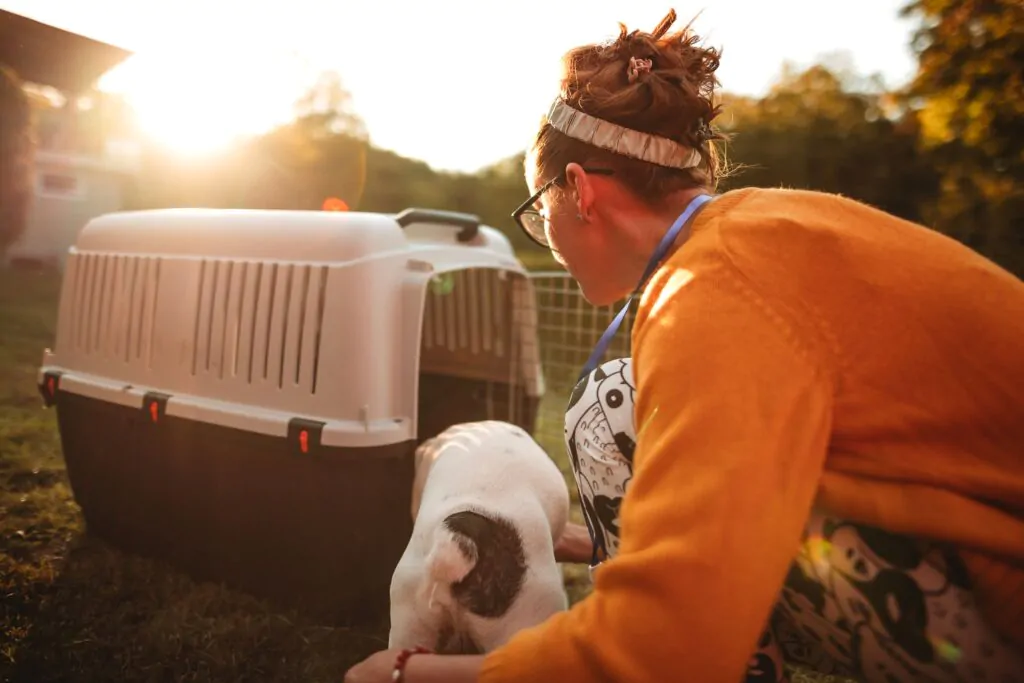
How to find a reputable dog breeder

Philippa Short
1 July 2025
You’ve decided to bring a puppy into the family, how exciting! But did you know that where you get them from is hugely important?
With so many puppy farms across the UK, Ireland, and the EU you need to know how to find a reputable and ethical breeder.
Below, expert dog behaviourist Philippa Short explains what makes a good breeder and what to look out for when choosing your puppy.
● How to find a good pedigree dog breeder
● What are the different kinds of dog breeder?
● What makes a good dog breeder?
● What to expect when approaching a reputable dog breeder
● Checklist for collecting your puppy
● How to find a good kennel breeder
How to find a good pedigree dog breeder
If you’re thinking about getting a pedigree or a cross-breed you need to make sure you’ve thoroughly researched the breed first. This means:
● Understanding their needs and whether your lifestyle can meet those needs.
● Being aware of any potential future health issues and if you can afford dog insurance to cover these.
Once that’s done you have two trustworthy places to find your puppy – Champdogs or the Kennel Club Assured Breeder list.
● Champdogs promotes responsible breeding and only allows dogs to be listed if they’ve had full health testing.
● Equally, dogs on the Kennel Club Assured Breeder list need to have completed all appropriate breed health tests.
● Be mindful that a dog being KC registered doesn’t guarantee that health checks have been done. Only that you know the lineage of the dog.
There are many other websites where you can get decent and well-bred puppies. But you need to thoroughly check their details and make sure you have proof of all health checks.
And no matter what, if your gut is saying something is wrong, always walk away. Don’t let your heart rule your head – the right puppy is out there for you somewhere.
What are the different kinds of dog breeder?
You’ll normally come across three types of dog breeders: hobby, commercial, and puppy farm/bad breeder.
Hobby breeder
● Tends to just have one breed of dog
● Likely has their female with them and breeds no more than one or two litters a year
● Will keep their dogs from puppy to old age
● Frequently breeds to continue their specific dog line
● Has the whole dog family unit there and can tell you all about their personalities
● Likely has either a chat or social media group support group for everyone who has bought puppies from them
Commercial breeder
● Can be a very good breeder and knows the breeds very well
● May have between one and three breeds
● Not as likely to keep all the dogs they’ve ever had in the breeding line
● Typically breeds the female three times and then finds them a good home to retire from breeding
Puppy farm breeder (or other bad breeders)
● Just wants to breed
● No thoughts about welfare or ethical breeding standards
● Won’t care where the puppy goes as long as they can sell them

What makes a good dog breeder?
A good breeder knows their breed inside and out. They can tell you all about:
● Their history, temperament, and behaviours you’ll expect to see
● Any weakness in the physical line of the breed
● Any known health issues, including ones that can be tested and others that can’t yet be tested in the breed
A reputable breeder is happy to answer all questions you have because their goal is to make sure their puppies go to good homes. That also means asking you just as many questions to
make sure you’re getting the right puppy. So if they’re avoiding your questions or at any point you feel worried or intimidated, walk away.
> Puppy culture
Puppy culture is a daily socialisation and training programme specifically designed for dogs raised by breeders. The goal is to increase the puppy’s neuroplasticity so they have a strong and confident approach to the world.
It’s a scientifically proven method and separates the good breeders from the fantastic ones. If you can, always look for a puppy reared by puppy culture.
Here are the basics:
● The programme starts when the puppies are only three or four days old.
● It focuses on early neurological stimulation (ENS) – introducing different sensations to encourage neurological growth.
● At the start – when their eyes and ears are closed – the breeder will do things to stimulate them. For example, rubbing their bellies, introducing wet and cold, and running a cotton bud on their paws.
● Once they’re awake, the breeder walks them over different surfaces. They also put a new object in with them and play different sounds each day.
● Finally, experts come in to give the puppies different training experiences such as assault courses.
What to expect when approaching a reputable dog breeder
> Step one – First phone call with the breeder
You should have an open and easy dialogue with the breeder, so get to know a bit about them and their dogs.
- Are they passionate about dogs?
- Do they tell you all about their dogs’ personalities?
- Has the mum had her puppies yet?
- What health tests have the mum and dad have?
- Can you meet the dad? (This may not always be possible)
- Is this the mum’s first litter? If not, when did she have her last litter?
- If the puppy isn’t going to be KC registered, why?
- Are they intending to microchip the puppy before they leave?
- At what age can you take the puppy home?
Some red flags to look out for:
- Not letting you see the mum – there’s no valid reason for this
- Not microchipping – this is the law
- Not KC registering the puppy – you can’t register a puppy if the mum has had more than four litters in her lifetime, which suggests she’s been overbred
- Offering to let you have the puppy before they’re eight weeks old – this is illegal
- Not letting the puppy leave for a bit longer than normal – unless it’s clear that they are a sensitive breed and the breeder is socialising them
If you’re happy with everything discussed on the phone, you may need to do an intake form. This is where the breeder will get more details about you to check your suitability for the breed and can ask you:
- Why you are choosing this breed
- If you work full or part-time
- How many dogs have you had before
- How much training and exercise you can give an adult dog
> Step two – Meeting the breeder in person
You must be able to go to the breeder’s home – there’s no excuse for this not to be arranged. A breeder should never ask to meet you at a designated ‘meeting point’. Examples include a local field, a ‘family member’s house’, or bringing the puppies to your house.
When you get to the breeder’s house you’re looking for:
- A well-maintained environment that’s safe and comfortable in which to generally raise a dog
- A clean, penned-off space with a whelping box, all of which is big enough for the size and number of puppies
- Puppies who are happy and active (if the whole litter is asleep that usually means it’s nap time)
- Mum is there, it’s obvious who she is (she’ll have enlarged, lactating nipples), and she’s happy to be around you
- An indoor and outdoor set-up so the puppies can have outdoor experiences
Aside from offering you a designated ‘meeting point’, other red flags to watch out for include:
- One or two puppies who look unhappy or huddled together – this could be a sign of illness, especially if the others are active
- Mum is dried up or a female dog is present but they have no obvious milk to them
- Mum doesn’t want you there because she’s exhausted and flooded with hormones – this could mean the puppies are still too young to visit
- A dirty or tiny living environment that’s not appropriately sized for the breed
> Step three – Asking questions on your first puppy visit
During this first in-person meeting with the breeder, you’ll want to talk through all the things you’ve gone through in that first call.
Then it’s time to ask:
- Are they giving you a puppy pack? This could include toys and some of the food they’ve been weaned on as switching food too quickly can cause an upset tummy.
- Will the puppy be given their first vaccination? If so, you’ll need to find a vet who uses the same brand or start their course all over again.
- Do you have to sign a puppy contract? This is a good thing as a reputable breeder will always take your puppy back if you have a problem and can’t keep them. For example, your health, home, or location changes.
- Is there a breeding clause in the contract? A good breeder will put in restrictions to protect their lineage, such as making sure you do health checks before breeding.
- Has your puppy been acclimatised to different people and sounds? Introducing them to early socialisation and habituation can help you when they come home.
- Do they have a toileting area for the puppies? Not all breeders have this but it can help your approach to toilet training.

Checklist for collecting your puppy
When it’s time to pick up your puppy, a good breeder will:
- Give you all their paperwork – puppy contract, microchip certificate, vaccination card (if needed).
- Cut up some of the puppy’s vet bed to take with you so it has the soothing scent of their mum and siblings.
- Hand over a puppy pack with some food and toys to settle them into their new home.
- Encourage you to take your puppy to a vet for a health check within 48 hours of coming home.
How to find a good kennel breeder
You can still have an excellent breeder who breeds their puppies in a kennel outside. This is quite common with Terrier and gun dog breeders.
The expectations of a kennel breeder are the same as a house breeder:
- Are the kennels clean?
- How are the puppies acting?
- Is the mum there?
- Do mum and puppies interact with the breeder and feel safe doing so?


